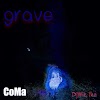Soledad Toledo in Photography | credit : Soledad Toledo
There’s a kind of quiet conviction in the way Soledad Toledo talks about music — the sort of composure that comes from knowing your purpose long before the world catches on. “There was never a turning point,” she says with a soft smile. “I’ve known it my whole life. It was simply a given.” That calm certainty defines her journey from the folkloric dance halls of northern Argentina to the cinematic soundscapes of Los Angeles, where she now stands as one of the emerging voices shaping the intersection of global culture and modern storytelling.
For Toledo — or Sol, as she’s affectionately called — music wasn’t discovered; it was inherited. Her childhood unfolded to the rhythm of Argentina’s cultural heartbeat. Her parents, both lovers of traditional folklore, enrolled her in dance classes that lasted nearly a decade. But even as a young girl, it wasn’t the choreography that captivated her — it was the music itself. “At twelve I picked up a guitar, then came piano and singing lessons,” she recalls. “By fifteen, half my day was spent in the town’s music academy. It was all I wanted to do.” She grew up listening to icons like Mercedes Sosa and Natalia Barrionuevo, their voices steeped in history and emotion, yet found equal inspiration in global artists such as Troye Sivan and Bon Iver. That duality — rooted yet forward-looking — would later define her sound. “The folklore from my roots still lives in everything I create,” she says. “It’s impossible to separate the two.”
After completing a degree in Composition, Arrangement, and Production in Córdoba in 2018, Toledo’s life took an unexpected turn toward the world stage. A one-week workshop in Chile introduced her to Berklee College of Music, a name she hadn’t even heard before. “I applied and auditioned because I had nothing to lose,” she admits. “My parents believed in me more than I did. They’re the reason I’m still doing this.” Berklee not only accepted her but offered a scholarship that would take her to Boston, where she immersed herself in Film and Media Scoring. “That school taught me more than music,” she reflects. “It taught me how to communicate, how to manage my time, how to market my art. It showed me the difference between being an artist and being a professional.”
Her first major project arrived at the height of the pandemic — a Netflix Latin America documentary titled Virgilio, directed by Alfred Oliveri and centered on Peruvian chef Virgilio Martínez. Tasked with composing over thirty minutes of original music, Toledo approached the project with both reverence and daring. “It was my first large-scale score,” she says. “I handled everything — composing, mixing, mastering, cue delivery. It was a crash course in everything I’d learned.” The result was a lush, textured score that bridged Andean rhythms with contemporary instrumentation, a sonic mirror to Martínez’s own blend of tradition and innovation. The film’s success culminated in recognition at the 2024 New York Festivals TV & Film Awards, affirming Toledo’s growing reputation as a composer of sensitivity and scope.
Since then, she’s contributed to an expanding list of international projects, including the short films Devoted and Subsequent To, where her versatility shines through — from intimate piano-led pieces to more experimental sound design that stretches emotion into abstraction. Her foray into animation brought a new dimension to her process. “Animation is more collaborative,” she explains. “Sometimes the visuals inspire the score, sometimes the sound reshapes the animation. It’s a dialogue — and that’s what excites me.”
Parallel to her film work, Toledo has cultivated a deeply personal body of songs that reveal the soul behind the score. Her songwriting — bilingual, vulnerable, and unflinchingly honest — covers themes that many artists shy away from. “Sempiterno,” co-produced with Vikrum Goel, captures the ghostly beauty of waiting for a love that never returns. “Taza de Té,” a collaboration with guitarist Nelson Scalici, tackles consent and the aftermath of sexual trauma with restraint and emotional precision. “Hija de Saturno” draws from her folklore roots to explore karma and endurance, while “Born With It” calls out the invisible hierarchies of beauty and privilege that shape modern culture. And then there are “Súplica” and “Días” — haunting, introspective pieces born from her own experiences with depression and suicidal thoughts. “Those are the most special lyrics I’ve ever written,” she admits quietly. “They came from a place of pain, but also survival.”
In Los Angeles, Toledo’s creative circle has expanded to include some of the industry’s most respected mentors. At the Los Angeles Film Conducting Intensive (LAFCI), led by conductor Angel Vélez, she became an integral part of the behind-the-scenes team, coordinating musicians, preparing click tracks, and managing the music library during live orchestral sessions at Warner Bros. Studios. She also collaborates with Suzanne Lloyd of Harold Lloyd Entertainment, reaching out to orchestras across the United States to stage silent film screenings accompanied by live scores — a project that connects Hollywood’s golden era with a new generation of audiences. “We’re still in the early stages,” she says. “But it’s rewarding to help bring that history back to life.”
Despite her growing résumé, Sol remains tethered to her beginnings. “It’s hard to choose a language when I write,” she says. “Spanish carries emotion differently than English, but my roots — that Argentine pulse — always lead.” Her upcoming releases, all in English, still carry that unmistakable sense of home, even when filtered through modern production and international sensibility. “It’s a fusion,” she explains. “Old rhythms, new stories.”
As 2025 unfolds, Toledo is finishing several new songs set for release later this year while juggling festival-bound film scores. “The lyrics and melodies are already there,” she says. “Now it’s about capturing the emotion in sound.” Whether those tracks emerge as singles or part of a larger EP, they signal an artist in full command of her evolution — one who refuses to be boxed into a single identity.
When asked what advice she would give to young artists chasing similar dreams, her answer arrives with quiet authority. “Please, don’t ever give up,” she says. “There will be days when it feels pointless — that’s when you rest, not quit. Sleep, breathe, and come back to it. All good things take time. The things made from love will always find their way.”
And in Sol’s case, love — for music, for her roots, for the craft itself — continues to find its way into every note she writes, every lyric she shapes, and every story she dares to tell.
Originally published on https://www.lifoti.com/







0 Comments